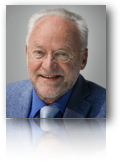Karen Rook is a professor of psychology at the University of California, Irvine, USA, where she has also served as a department chair and associate dean.
Her research over the past 30 years has sought to understand how social relationships enhance or detract from health and well-being. This interest has led her to examine the health-related effects of negative, as well as positive, social exchanges. It has also led her to examine not only social support but also companionship and control (or regulation), as important functions of social relationships that affect health and well-being in distinctive ways. By adopting this broad perspective, her work has helped to stimulate research on previously neglected mechanisms by which social relationships may influence health.
Suzanne Skevington holds a Project Diamond Chair in Health Psychology at the University of Manchester where she directs an international centre for the study of quality of life. She was chair of the Division of Health Psychology at the British Psychological Society (2000-3).
Professor Skevington’s interests focus on assessing quality of life and well-being in health and health care, international health, and cross-cultural psychology. For 20 years she has worked within an international collaboration – the WHOQOL-Group – which was established by the World Health Organisation, Geneva, to measure quality of life in diverse cultures.
Prof. Skevington has been invited to address meetings at UNAIDS, UNESCO, OECD, UNEP and the UN, and advises some of these bodies. She has been a Board Director of the International Society for Quality of Life Research (ISOQOL). She is currently interested in the implementations of routine assessment of subjective quality of life in the NHS. Also addressing health inequalities, following from an international study of poverty and quality of life in low and middle income countries (£3.3m ESRC funding) belong to her main research areas.

Ruut Veenhoven studied sociology and is emeritus professor of social conditions for human happiness at Erasmus University Rotterdam in The Netherlands, where he is currently affiliated with the Erasmus Happiness Economics Research Organization. Veenhoven is director of the World Database of Happiness and editor of the Journal of Happiness Studies.
Prof. Veenhoven’s current research focuses on the effects of choice on happiness, public choice as well as private choice.

Adrian Taylor is Professor in Health Services Research at the Plymouth University Peninsula School of Medicine & Dentistry, UK. He has worked in the field of exercise & health psychology, at 4 UK Universities since 1989 after completing his PhD at the University of Toronto. He is the founding co-Editor in Chief of the interdisciplinary journal Mental Health and Physical Activity, now in its 6th year.
For 10 years he has been contributing to an evidence-base for how single sessions of physical activity (compared with sedentary behavior) influence affect and mood, self-regulation of smoking, snacking and alcohol use, based on self-reported urges, fMRI and cue reactivity, and eye tracking and dot probe tasks (to assess attentional bias). This experimental work has been used to inform interventions to facilitate the treatment of depression, support disadvantaged smokers to reduce their smoking, and tackle simultaneous multiple behavior change. He has received over £3.5m as P.I or co-P.I. for related work and has authored over 100 journal articles and book chapters.

